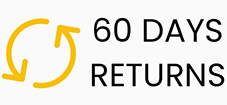




















A golf GPS rangefinder is one of the most innovative tools of the golf scene. Using satellite technology, it provides instant yards distance of key points on the golf course — including the front, middle, and back of the green, as well as bunkers, hazards, and doglegs — basically whatever you want to measure the distance of on the course!
While laser rangefinders rely on line-of-sight targeting, GPS rangefinders use preloaded digital maps of golf courses to calculate distances automatically. This makes them fast, hands-free, and perfect for golfers who want an easy and efficient way to manage their round.
A golf GPS rangefinder (or GPS distance finder) uses Global Positioning System technology — the same satellites that power your car’s navigation — to measure your location on the course and display accurate distances to fixed points ahead.
These devices come in several forms:
Instead of aiming at a flag, the GPS unit automatically calculates distances using preloaded course data. Most premium models include thousands of global golf courses, and some can even update automatically via Bluetooth or Wi-Fi.
Modern golf GPS rangefinders are very accurate, typically within 2–5 yards of the actual distance.
While this is slightly less precise than a laser rangefinder (which can be accurate to within 1 yard), the difference is small enough that it rarely affects club choice for most players.
Different golfers benefit from GPS technology for different reasons. Here’s who it suits most:
Golfers who play for fun or recreation will appreciate the simplicity and speed of a GPS rangefinder.
No need to aim or focus — just glance at your watch or device for instant yardage.
Why it suits them:
Many senior golfers prefer GPS rangefinders because they are hands-free and easy to read. Devices like GPS watches display distances at a glance without needing to hold a rangefinder steady.
Why it suits them:
Beginners benefit greatly from GPS rangefinders because they remove guesswork and help build distance awareness. You’ll know exactly how far you are from the green, improving both confidence and learning.
Why it suits them:
For golfers who focus on course management, GPS rangefinders provide an aerial overview of the hole. This allows you to plan shots around hazards and optimise lay-up distances with precision.
Why it suits them:
Under normal conditions, GPS rangefinders are impressively reliable.
For the majority of golfers, a 2–3 yard difference is not significant enough to impact club choice — making GPS rangefinders both practical and effective.
| Feature | GPS Rangefinder | Laser Rangefinder |
| Technology | Satellite-based mapping | Laser beam reflection |
| Accuracy | ±2–5 yards | ±1 yard |
| Speed | Instant readings | Requires aiming |
| Use | Hands-free or one glance | Manual aim per shot |
| Data Shown | Distances to green, hazards, lay-ups | Distance to visible target only |
| Ease of Use | Very easy | Slightly more technical |
| Best For | Casual golfers, beginners, GPS users | Serious players, precise targeting |
Despite these minor drawbacks, GPS rangefinders remain one of the easiest, most user-friendly ways to get consistent yardages on the golf course.
A golf GPS rangefinder is designed for simplicity, speed, and strategic awareness. It might not be accurate to the exact inch like a laser, but for 99% of golfers, the 2–5 yard precision range is more than enough to improve scores and confidence.
Whether you’re a beginner, casual player, or experienced golfer, a GPS rangefinder helps you make better decisions, avoid hazards, and manage the course efficiently.
Alex Smith is the Head PGA Pro at Online Golf Shop. With over 20 years of experience in the golf industry, Alex has a passion for helping golfers improve their game. He shares trusted and authentic advice through tips, tricks, and thorough product reviews—always based on his own experiences and insights. Alex also helps shape our product selection, making sure it’s tailored to every golfer’s needs, helping you find the right equipment and strategies to play your best golf!
Frequently Asked Questions?
A golf GPS rangefinder uses satellite technology to show distances to the green, hazards, and fairways. It automatically updates as you move around the course.
Most GPS rangefinders are accurate to within 2–5 yards, which is more than precise enough for club selection and course strategy.
GPS rangefinders are ideal for casual players, beginners, and senior golfers who prefer quick, easy-to-read distances without needing to aim.
GPS models use satellite data to show mapped distances to multiple points, while laser rangefinders provide direct line-of-sight distance to visible targets.
Yes, GPS rangefinders that provide only distance measurements (and no slope or wind features) are legal in most tournaments under R&A and USGA rules.
Yes. GPS golf watches use the same technology as handheld devices and typically offer 2–4 yard accuracy to greens and hazards.

Phone: 020 8064 0105